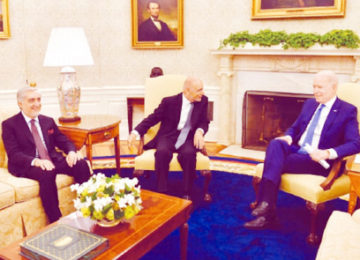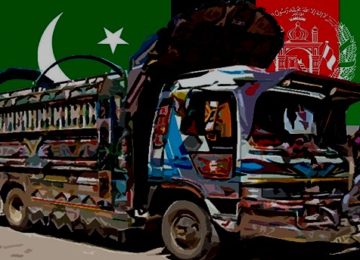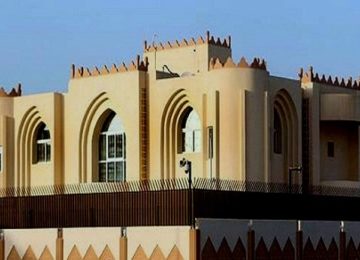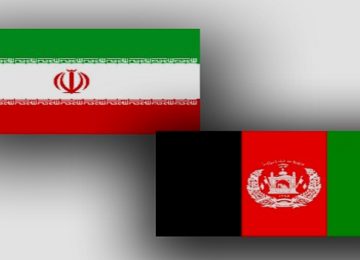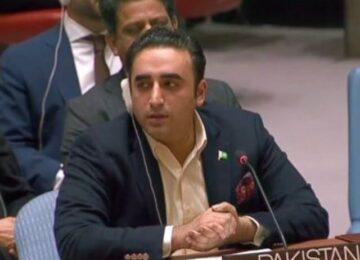April 29, 2020
Afghan Studies Center (ASC) conducted a virtual Focus Group Discussion (FGD) on “Pak-Afghan Bilateral Trade and Transit vis-a-vis COVID-19 and the Way Forward” on April 29, 2020 via Zoom.
The panel of experts included Dr. Vaqar Ahmed, Joint Executive Director, Sustainable Development Policy Institute (SDPI); Mozammil Shinwari, Former Deputy Commerce Minister, Afghanistan; Dr. Shabana Fayyaz, Head of Department, Defense and Strategic Studies, Quaid-i-Azam University, Islamabad; Zia ul Haq Sarhadi, former Senior Vice President, Pak-Afghan Joint Chambers of Commerce and Industry; Said Mehmood, Chairman, Harris Company and Honorary Consul General of Tajikistan; Amina Khan, Senior Research Fellow, Institute of Strategic Studies (ISSI) and Imtiaz Gul, Executive Director, Center for Research and Security Studies (CRSS) and Afghan Studies Center (ASC).
Imtiaz Gul, welcomed all the panelists and gave a snap-shot of what’s been happening regarding Pak-Afghan trade after COVID-19. He stated that recently a mechanism has been established between the two sides, which allows the flow of cargo for three days a week. This mechanism identifies the transporters well in advance, ensures rapid customs clearance at the border and provision of dis-infecting facility on both sides of the border. As far as Pakistan is concerned, these pre-requisites are being ensured. Unfortunately, on Afghan side, it all boils down to the capacity. Nonetheless, both sides need to have close collaboration to mitigate issues that hinder smooth flow of the trade.
Experts are of the view that the government of Afghanistan and the government of Pakistan, both agree that there should be a at least some flow between both countries, regarding bilateral as well as transit trade, rather than complete shut-down. That is why both sides allowed opening of the border three days a week. However, there is limited capacity on both sides and load of trade flow is quite huge to manage, particularly in these testing times of COVID-19. At present, around 7000 containers are stuck at Karachi, while at Torkham and Chaman, at most 100 containers a day only, are allowed to pass through.

According to Mozammil Shinwari, Director Customs Nangarhar is of the view that they can manage as many incoming trucks from Pakistan into Afghanistan. So, they are prepared and want Pakistan to allow more trucks to pass through, and save the traders from extra-cost, both implicit and explicit, that they have to bear otherwise. Afghanistan rely heavily on Pakistan regarding bilateral as well as transit trade. So, when the flow from Pakistan in both cases gets halted, it also causes inflation inside Afghanistan due to shortage of commodities.
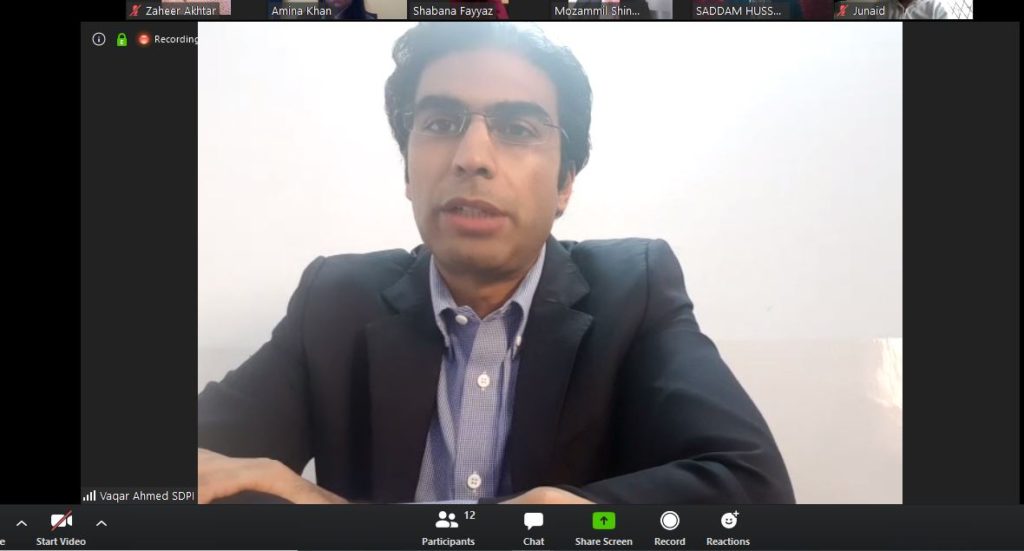
Dr. Vaqar Ahmed stated that Pakistan has now also provided a special permission to resume the handling of Afghan cargo at Gwadar port under the Afghanistan-Pakistan Transit Trade Agreement 2010 to help in early clearance and quicker transportation of sugar, wheat, and fertilizer to Afghanistan. However, Gwadar port can be utilized more optimally for trade and transit for Afghan side. He also shared the good news that the Foreign Office of Pakistan will be holding online meeting in the first week of May for at least two of the working groups under Afghanistan-Pakistan Action Plan for Peace and Solidarity (APAPPS), which is very encouraging.
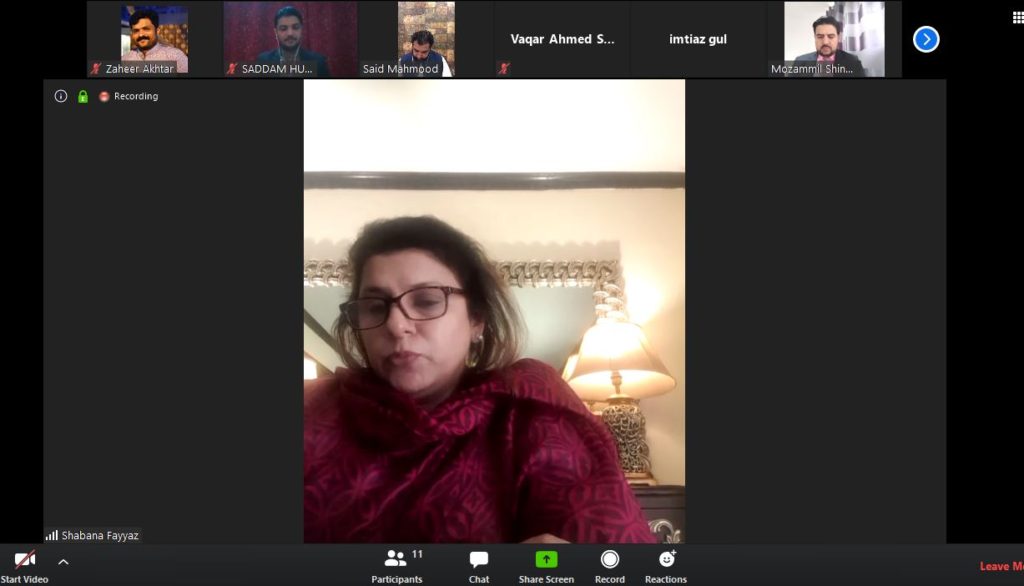
Talking about bilateral relations, Dr. Shabbana Fayaz was of the view that practically if one looks at the Pak-Afghan border issues amid COVID-19, there are hiccups on both sides, both administrative as well as institutional. Afghanistan is a major trading partner of Pakistan, and the latter suffers a lot in the context of economic gains, whether due to war in Afghanistan or COVID-19 pandemic. She further stated that, the flow of smuggling and narcotics also adds to the already existing mistrust across the border, when it comes to trade. For now, we need to have a collaborative approach since COVID19 has presented an opportunity for cooperation, so it is the right time to be on the same page, she added.

Amina Khan, a young researcher shared her sentiments by mentioning that she discussed the same issues regarding Pak-Afghan bilateral trade in a similar discussion in 2006, It is very unfortunate that after all those years we are still stuck in there. Both sides need to focus and prioritize trade and trade should be de-linked from politics, if both sides have to move forward rather than just staring at the stalemate.

Senior writer and expert on Pak-Afghan issues, Zia ul Haq Sarhadi and Said Mehmood said that Pakistani exporters are facing heavy losses as thousands of trucks, carrying perishable items such as rice, potatoes, vegetables and medicinal items, are stuck at the Pakistan-Afghan borders. He also opined that the concerned authorities should allow export of Pakistani consignments to Afghanistan through Chaman, Torkham and other crossing points without any unnecessary administrative glitches. This will be a win-win for both sides.

It is pertinent to note that, the Prime Minister of Pakistan Imran Khan is keen on liberalizing measures at the Pakistan-Afghanistan border for trade, and has often issued directives, but still there is lack of clarity around the Standard Operating Procedures (SOPs) on what is allowed to pass and what is not allowed to pass through the border. So, there arises the need to reach a quick clarity in this regard.
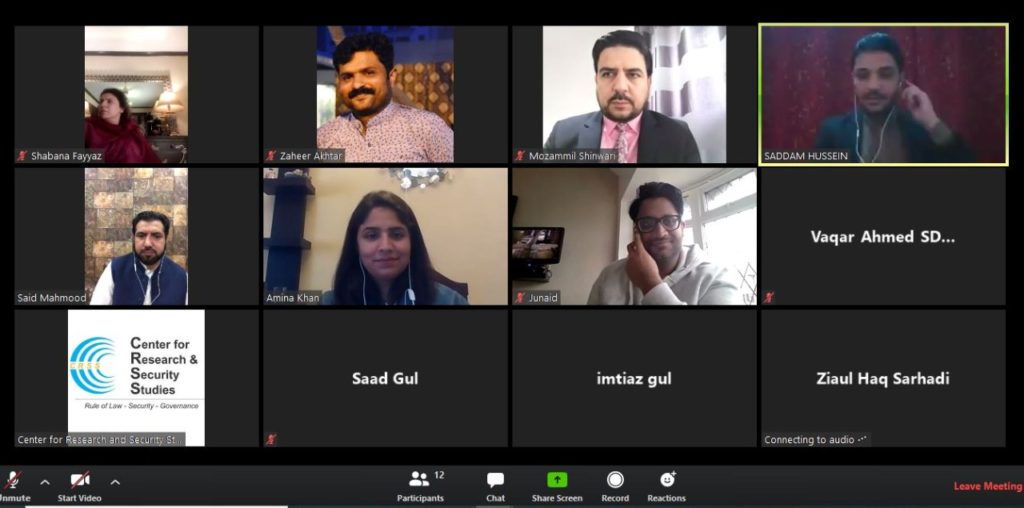
The panelists towards the conclusion, formulated joint recommendations, which are as follows:
- Experts calls for establishing at the level of both governments a high-powered working group with representation from the business community and relevant think tanks which can advise the government on how to continue to conduct transit trade for Afghanistan in the coming days, especially in times of a prolonged lockdown
- In these challenging times, border officials have a critical role, as they are best placed to understand how much the border facilities are well-endowed and capacitated in terms of preventing a localized outbreak and taking care of compliance with SOPs and ensuring that necessary human resource to keep a check on the right kind of transit flows is available at the border post.
- The business stakeholders have requested the Government of Pakistan to follow the container inspection regulations as per Afghanistan-Pakistan Transit Trade Agreement (APTTA). Currently 100% of cargo inspection is being carried out which is resulting in delays and traffic congestion
- Both governments should adapt safe transit trade protocols which is currently being followed by many countries across the globe
- In the absence of air cargo, movement of people should be considered following certain protocols. Apart from bilateral and transit trade, trade in services has been also reduced between Afghanistan and Pakistan, which can be normalized by movement of people under certain SOPs
- Mistrust amongst both countries at the state-level still exists due to historical baggage. Thus, traders along with the governments should introduce tangible steps to curtail smuggling and undocumented trade, so to avoid negative impact of mistrust of economic activity between the two sides
- Business stakeholders should be taken on board whilst devising any new trade policy as they are aware of the ground realities
- One window operation should be introduced for both bilateral and transit trade movement. Furthermore, this window should be responsible for each step required for the movement such as driver’s visa clearance, health and safety protocols checking etc.
- Both sides should have separate terminals/counters for traders and their consignments, so to beef up the smooth mobility, lowering the transaction cost; hence more economic gains across the border
- Both countries ought to implement APTTA whole heartedly as it already contains all the aspects required for transit trade as per World Trade Organization (WTO) rules and regulations
- There is an opportunity in COVID-19 crisis as well and the Pakistan must respond to that, i.e., look into COVID19 related needs of Afghanistan and how it can quickly increase exports to Afghanistan – such as exports of Personal Protective Equipment (PPE), health products, pharmaceutical, and so on. There is also an opportunity of increasing health services trade with Afghanistan, such as providing increased diagnostic facilities
- Central banks in the region have been holding their own meetings to keep regional trade going. This calls for an opportunity, meeting between the central banks of Pakistan and Afghanistan would be beneficial.

Earlier, Saddam Hussein, Program Officer at Afghan Studies Center, who was moderating the session, summed up the discussion stating that safety and economy should go hand in hand. There is a need to adjust to the COVID-19 which is becoming neo-normal now. One cannot wait for COVID-19 to end and then kick-start the economic activity. The wheel of the economy must keep moving, though with safety protocols to minimize the risk of COVID-19 spread. We need to keep the economies from going into shut-down mode, which will have unprecedented negative spill-over effects. So, there is a catch-22; however, smart approaches can help.




